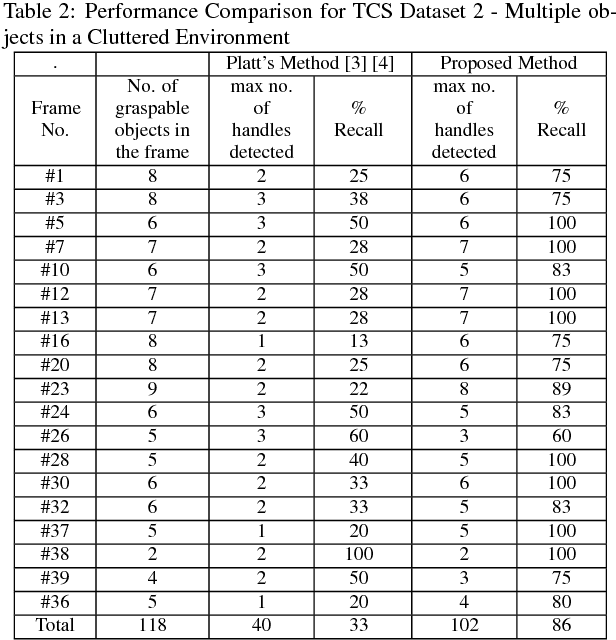A Novel Geometry-based Algorithm for Robust Grasping in Extreme Clutter Environment
Paper and Code
Jul 27, 2018



This paper looks into the problem of grasping unknown objects in a cluttered environment using 3D point cloud data obtained from a range or an RGBD sensor. The objective is to identify graspable regions and detect suitable grasp poses from a single view, possibly, partial 3D point cloud without any apriori knowledge of the object geometry. The problem is solved in two steps: (1) identifying and segmenting various object surfaces and, (2) searching for suitable grasping handles on these surfaces by applying geometric constraints of the physical gripper. The first step is solved by using a modified version of region growing algorithm that uses a pair of thresholds for smoothness constraint on local surface normals to find natural boundaries of object surfaces. In this process, a novel concept of edge point is introduced that allows us to segment between different surfaces of the same object. The second step is solved by converting a 6D pose detection problem into a 1D linear search problem by projecting 3D cloud points onto the principal axes of the object surface. The graspable handles are then localized by applying physical constraints of the gripper. The resulting method allows us to grasp all kinds of objects including rectangular or box-type objects with flat surfaces which have been difficult so far to deal with in the grasping literature. The proposed method is simple and can be implemented in real-time and does not require any off-line training phase for finding these affordances. The improvements achieved is demonstrated through comparison with another state-of-the-art grasping algorithm on various publicly-available and self-created datasets.
 Add to Chrome
Add to Chrome Add to Firefox
Add to Firefox Add to Edge
Add to Edge